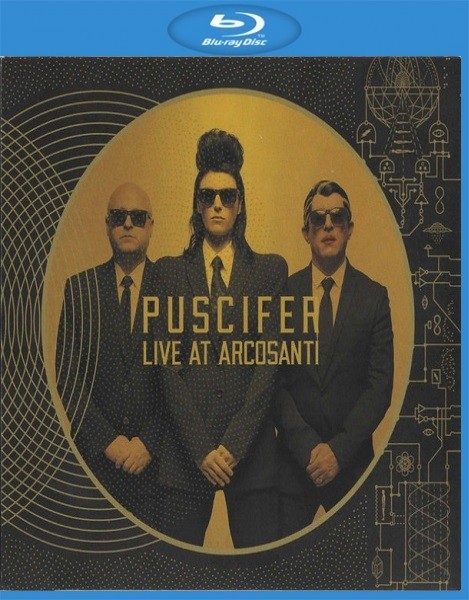
New York Philharmonic, Lorin Maazel – Mahler: Symphony No. 8 (2009)
FLAC (tracks) 24 bit/96 kHz | Time – 01:31:46 minutes | 1,64 GB | Genre: Classical
Studio Masters, Official Digital Download | Front Cover | © New York Philharmonic
Today Gustav Mahler is universally recognized as one of the supreme masters of the symphony, but this status was hard-won, and, for the most part, posthumous. His First Symphony was such a disastrous failure at its premiere in 1889 that afterward, by the composer’s own account he “went around like a sick person or an outcast.”
Not until the premiere of his complete Third Symphony, in 1902, did Mahler score a firm success with a symphony, but that would remain the exception rather than the rule as he continued to unveil his works. His Eighth Symphony, happily, proved to be another exception. Its premiere was an unmitigated triumph; and, although it is far from his most performed symphony – its exorbitant physical demands make it strictly a “special occasion” work – audience enthusiasm has only increased through the century since it was introduced. (The concerts heard in this recording certainly followed the tradition of a special occasion, as they were Lorin Maazel’s final performances with the New York Philharmonic as the Orchestra’s Music Director.)
The symphony’s personnel requirements are indeed extraordinary. Its premiere included the participation of 858 singers and 171 instrumentalists (plus one conductor – Mahler himself). The composer first broached the possibility of this work in a 1906 letter to the Munich impresario Emil Gutmann. He proposed his availability to conduct concerts in that city in the fall of 1910 and added: “I would be in a position to offer you a fairly large new work.” Plans proceeded in an on-again, off-again fashion until a date was eventually set and Gutmann began lining up a huge roster of musicians. It was Gutmann’s job to sell this huge and potentially perilous venture to the concert-going public, and, in the event, he could not resist dubbing the piece the “Symphony of a Thousand.” Mahler was displeased when he learned of this marketing motto, despite the fact that it was demonstrably true – and even an understatement by 30 bodies. The nickname proved durable, and there’s no harm in it except that it has invited the occasional misunderstanding that Mahler considered such vast forces necessary for the performance of the piece, which is not at all the case. The majority of performances since then have involved considerably more modest forces (though the numbers are still extravagant by objective standards); the performances heard in this recording included a total of 350 singers and instrumentalists, plus one conductor.
In this work Mahler returns to the “vocal symphony,” an idea that he had explored in his Second, Third, and Fourth Symphonies but then abandoned by returning to strictly instrumental forces for his next three. The Eighth is the “most vocal” of all of his symphonies: singing pervades the work practically throughout. The piece is cast in two unequal parts that, on the surface, seem not to be much connected. The opening movement, which runs some 23 minutes, is a setting for chorus and orchestra of the medieval text Veni, creator spiritus, a hymn for Pentecost in which the “Creator Spirit,” the “highest gift of God,” is invited to infuse the human soul with grace, light, strength, and speech – in short, to endow people with the characteristics that should define humanity. (Mahler made loose use of the official text, altering some words and the order of some lines.) The second part, which is almost an hour long, is given over to the closing scene from the Second Part of Faust, the dramatic poem by Johann Wolfgang von Goethe (1749–1832) – a work of awesome cultural significance in German-speaking nations. Here we find Faust, the embodiment of human striving, at the point of his death, having committed many moral transgressions motivated by his questing ambition. In this almost operatic finale we follow his spirit as it ascends toward redemption in Heaven, rising from the depth of mountain gorges past various on-looking characters into the realm of the higher angels and, finally, into the presence of the Mater gloriosa, the Holy Virgin herself, with whom the spirit of Faust’s much-wronged lover, Gretchen, intercedes, praying that the love she and Faust once shared might earn his redemption and his admission to “higher spheres.”
Tracklist:
01. New York Philharmonic, Lorin Maazel – Symphony No. 8: I – I. Veni, creator spiritus (01:40)
02. New York Philharmonic, Lorin Maazel – Symphony No. 8: I – II. Imple superna gratia (05:16)
03. New York Philharmonic, Lorin Maazel – Symphony No. 8: I – III. Infirma nostri corporis (07:21)
04. New York Philharmonic, Lorin Maazel – Symphony No. 8: I – IV. Accende lumen sensibus (05:34)
05. New York Philharmonic, Lorin Maazel – Symphony No. 8: I – V. Veni, creator spiritus (05:05)
06. New York Philharmonic, Lorin Maazel – Symphony No. 8: I – VI. Gloria Patri Domino (02:57)
07. New York Philharmonic, Lorin Maazel – Symphony No. 8: II – I. Poco adagio (12:02)
08. New York Philharmonic, Lorin Maazel – Symphony No. 8: II – II. Waldung, sie schwankt heran (04:56)
09. New York Philharmonic, Lorin Maazel – Symphony No. 8: II – III. Ewiger Wonnebrand (01:34)
10. New York Philharmonic, Lorin Maazel – Symphony No. 8: II – IV. Wie Felsenabgrund mir zu Füßen (04:53)
11. New York Philharmonic, Lorin Maazel – Symphony No. 8: II – V. Gerettet ist das edle Glied (03:39)
12. New York Philharmonic, Lorin Maazel – Symphony No. 8: II – VI. Uns bleibt ein Erdenrest (03:23)
13. New York Philharmonic, Lorin Maazel – Symphony No. 8: II – VII. Höchste Herrscherin der Welt! (05:49)
14. New York Philharmonic, Lorin Maazel – Symphony No. 8: II – VIII. Dir, der Unberührbaren (02:36)
15. New York Philharmonic, Lorin Maazel – Symphony No. 8: II – IX. Bei der Liebe, die den Füßen (06:16)
16. New York Philharmonic, Lorin Maazel – Symphony No. 8: II – X. Neige, neige, du Ohnegleiche (04:20)
17. New York Philharmonic, Lorin Maazel – Symphony No. 8: II – XI. Komm! hebe dich zu höhern Sphären! (01:09)
18. New York Philharmonic, Lorin Maazel – Symphony No. 8: II – XII. Blikket auf (06:21)
19. New York Philharmonic, Lorin Maazel – Symphony No. 8: II – XIII. Alles Vergängliche (06:45)
Personnel:
Lorin Maazel, Conductor
Christine Brewer, Soprano (Magna Peccatrix)
Nancy Gustafson, Soprano (Una Poenitentium)
Jeanine DeBique, Soprano (Mater gloriosa)
Mary Phillips, Mezzo-soprano (Mulier Samaritana)
Nancy Maultsby, Mezzo-soprano (Maria Aegyptiaca)
Anthony Dean Griffey, Tenor (Doctor Marianus)
Wolfgang Schöne, Bass (Pater ecstaticus)
Jason Grant, Bass-baritone (Pater profundus)
New York Choral Artists, Joseph Flummerfelt, Director
The Dessoff Symphonic Choir, James Bagwell, Director
Brooklyn Youth Chorus, Dianne Berkun, Director
Choral preparation by Joseph Flummerfelt
Download:
https://hexload.com/p958xo4er2hk/MahlerSymph0nyN0.8NewY0rkPhilharm0nicL0rinMaazel20099624.part2.rar
https://xubster.com/xi6hr8evvyu1/MahlerSymph0nyN0.8NewY0rkPhilharm0nicL0rinMaazel20099624.part1.rar.html
https://xubster.com/jspxzbbvv51s/MahlerSymph0nyN0.8NewY0rkPhilharm0nicL0rinMaazel20099624.part2.rar.html








![New York Philharmonic, Fritz Reiner, Rudolf Serkin – Fritz Reiner conducts Bartok and Kodaly live 1960 (2022) [Official Digital Download 24bit/96kHz]](https://imghd.xyz/images/2022/10/21/bhvp3fqdxmtoa_600.jpg)
![New York Philharmonic, Dimitri Mitropoulos – Dimitri Mitropoulos conducts Berlioz Hd Mastering (Remastered 2022) (2022) [Official Digital Download 24bit/88,2kHz]](https://imghd.xyz/images/2022/10/21/q262a1i47hola_600.jpg)

![Lorin Maazel – Beethoven: Die Weihe des Hauses Overture, Op. 124 & 12 Contredanses, WoO 14 – Franck: Symphony in D Minor, FWV 48 (2023) [Official Digital Download 24bit/48kHz]](https://imghd.xyz/images/2023/08/18/p6zsjld84pupa_600.jpg)
![New York Philharmonic, Alan Gilbert – Nielsen: Violin Concerto, op.33; Flute Concerto, FS 119; Clarinet Concerto, op.129 (2015) [Official Digital Download 24bit/96kHz]](https://imghd.xyz/images/2023/07/25/QJMvGHK.jpg)
![New York Philharmonic & Jaap van Zweden – Julia Wolfe: Fire in my mouth (2019) [Official Digital Download 24bit/96kHz]](https://imghd.xyz/images/2023/07/22/i1l93los9o3va_600.jpg)
![New York Philharmonic & Jaap van Zweden – David Lang: prisoner of the state (2020) [Official Digital Download 24bit/96kHz]](https://imghd.xyz/images/2023/07/22/dwm150rkrlbrc_600.jpg)
![New York Philharmonic, Jaap van Zweden – Beethoven: Symphonies Nos. 5 & 7 (2018) [Official Digital Download 24bit/96kHz]](https://imghd.xyz/images/2023/07/22/GQOIRfw.jpg)






![Leonard Bernstein & New York Philharmonic – Bernstein Conducts Carl Maria von Weber (Remastered) (1976/2017) [Official Digital Download 24bit/192kHz]](https://imghd.xyz/images/2023/05/20/0886446463285_600.jpg)
![Lorin Maazel – Britten: War Requiem (2017) [Official Digital Download 24bit/44,1kHz]](https://imghd.xyz/images/2023/05/14/0793052112189_600.jpg)
![Leonard Bernstein, New York Philharmonic – Haydn: Mass In Time Of War & Symphony 96 (1973 & 1974) [Reissue 2017] MCH SACD ISO + Hi-Res FLAC](https://imghd.xyz/images/2023/05/11/jxoA1LR.jpg)
![Jaap van Zweden, New York Philharmonic – Stravinsky Le Sacre du printemps; Debussy La Mer (2019) [Official Digital Download 24bit/96kHz]](https://imghd.xyz/images/2023/04/03/zg2xq7xacdt7b_600.jpg)
![Isaac Stern, New York Philharmonic, Leonard Bernstein – Alban Berg & Belá Bartók Violin Concertos (Remastered) (2022) [Official Digital Download 24bit/96kHz]](https://imghd.xyz/images/2022/04/30/r0tsckrv4k5qb_600.jpg)
![Dimitri Mitropoulos, New York Philharmonic – Vaughan Williams Live Vol. 4 (2023) [Official Digital Download 24bit/44,1kHz]](https://imghd.xyz/images/2023/03/09/gy8uwzur26pqc_600.jpg)
![Berlin Radio Symphony Orchestra, Berlin Philharmonic, Lorin Maazel – Mendelssohn & Stravinsky: Orchestral Works (2023) [Official Digital Download 24bit/48kHz]](https://imghd.xyz/images/2023/02/09/ft5nza4slkc3a_600.jpg)
![New York Philharmonic, George Szell – George Szell live conducting Anton Bruckner Symphony No. 8 (2022) [Official Digital Download 24bit/48kHz]](https://imghd.xyz/images/2023/01/31/vzzvuvpka19vc_600.jpg)
![New York Philharmonic, Dimitri Mitropoulos – Mozart: Concerto for 2 Pianos, K. 365 & Symphony No. 39, K. 543 (2021 Remastered) (2021) [Official Digital Download 24bit/48kHz]](https://imghd.xyz/images/2022/12/20/zhka5udbflvdb_600.jpg)
![Cifford Curzon, Leonard Rose, George Szell, New York Philharmonic – George Szell conducts Brahms Piano Concerto No. 2 and Mozart Violin Concerto No. 3 live (2022) [Official Digital Download 24bit/48kHz]](https://imghd.xyz/images/2022/12/14/w8w10zfirkc1a_600.jpg)
![New York Philharmonic, George Szell, Clifford Curzon – Bruckner and Mozart complete live concerto conducted by George Szell (2022) [Official Digital Download 24bit/48kHz]](https://imghd.xyz/images/2022/12/14/l70gwyutzp77a_600.jpg)
![Mack Harrell, Eduard Steuermann, Artur Rodzinksi, New York Philharmonic – Bloch and Schoenberg conducted by Artur Rodzsinki live (2022) [Official Digital Download 24bit/96kHz]](https://imghd.xyz/images/2022/12/14/izukudx8vdpsb_600.jpg)
![Münchner Philharmoniker, Lorin Maazel – Messa da Requiem (2015) [Official Digital Download 24bit/44,1kHz]](https://imghd.xyz/images/2022/09/25/0886445105070_600.jpg)
![John Williams, Yo-Yo Ma, New York Philharmonic – A Gathering of Friends (2022) [Official Digital Download 24bit/96kHz]](https://imghd.xyz/images/2022/06/18/af72fsapf143b_600.jpg)